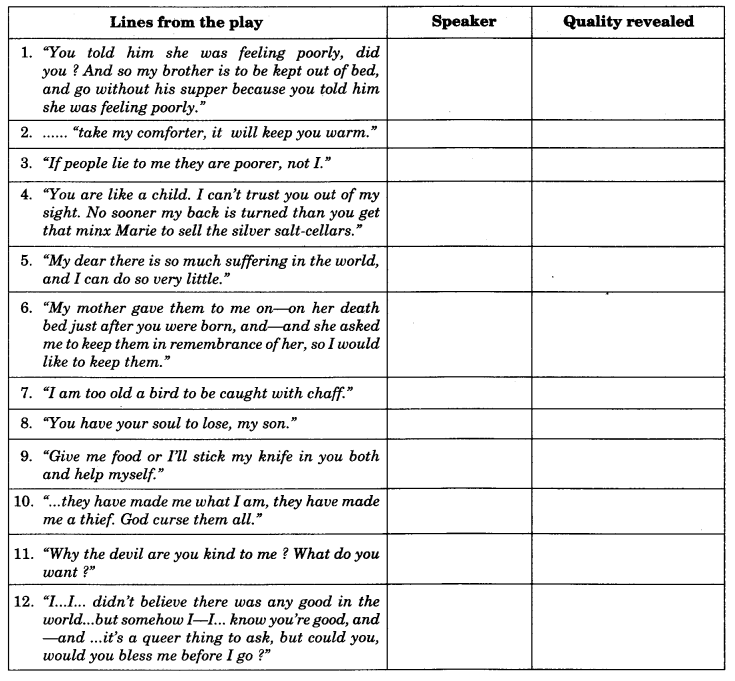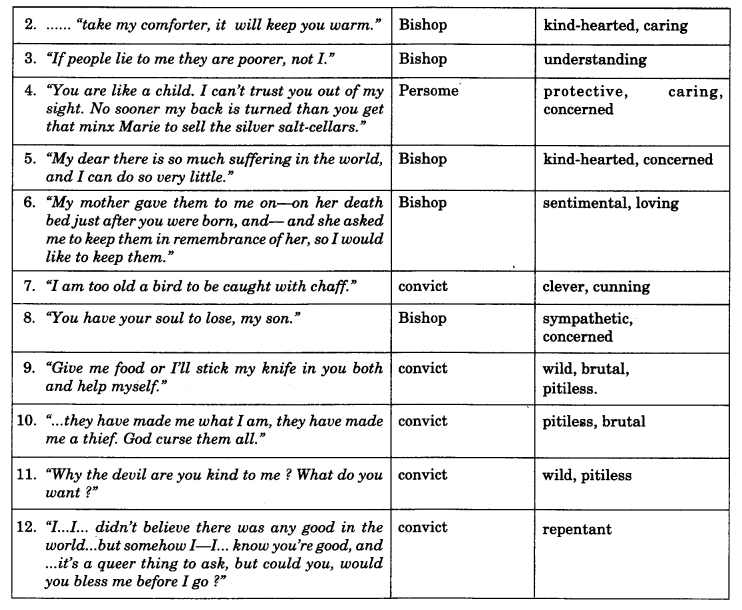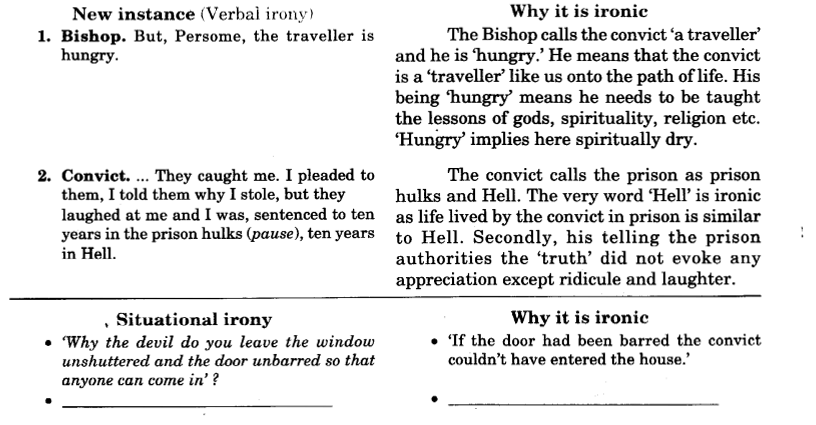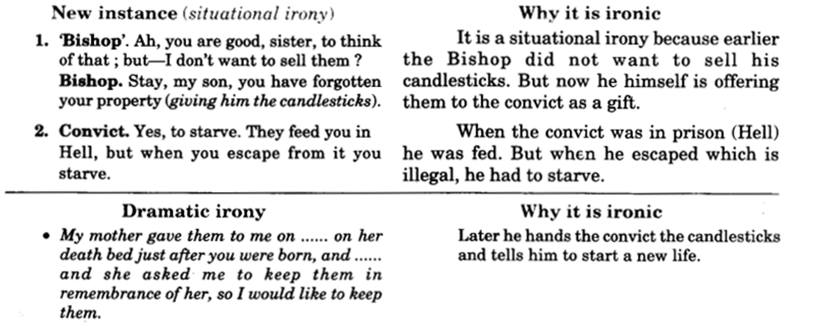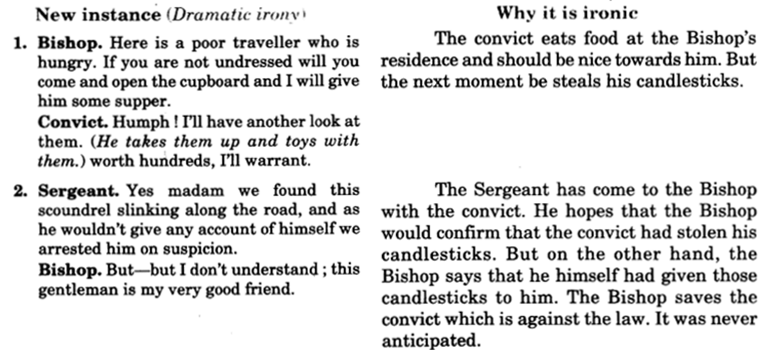NCERT Solutions for Class 9 English Literature Chapter 13 Villa for Sale are part of NCERT Solutions for Class 9 English. Here we have given NCERT Solutions for Class 9 English Literature Chapter 13 Villa for Sale.
| Board | CBSE |
| Textbook | NCERT |
| Class | Class 9 |
| Subject | English Literature |
| Chapter | Chapter 13 |
| Chapter Name | Villa for Sale |
| Number of Questions Solved | 10 |
| Category | NCERT Solutions |
NCERT Solutions for Class 9 English Literature Chapter 13 Villa for Sale
TEXTUAL EXERCISES
(Page 95)
Question 1.
If you could buy your dream house today what are some specific features you would want for your house? Write them in the bubbles below.
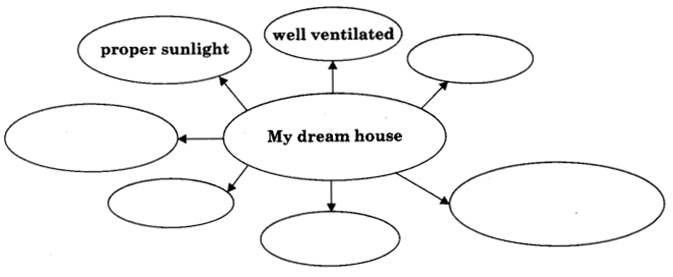
Answer
Various Answers
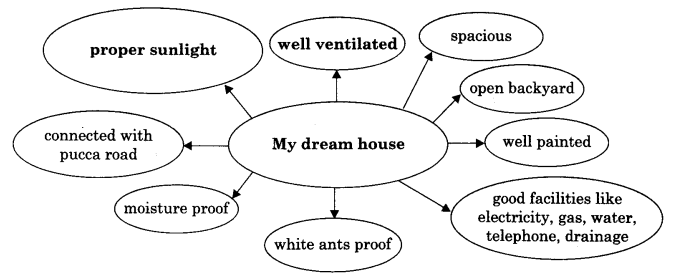
Question 2.
Discuss with your partner the similarities and in your dream house.
Answer
To be discussed with a partner at class level. Some hints are given below to enable a healthy discussion.
Houses of all may not conform to the physical features of an ideal house given above under 1. So students can discuss the difference on the following points :
- Similarities : rooms, sunlight, ventilation, electricity, gas, water, location, situation on roadside, telephone, drainage, park, etc.
- dissimilarities : location, direction of house, rooms, ventilation availabilities of bathrooms, drainage, electricity, water, telephone, access to road network, sanitation, park etc.
Students shall note that all don’t or may not have good or ideal houses. Some live in posh localities, some in semi-urban areas, while some in not-so-good houses. The above points can be the heads under which they can discuss the similarities and dissimilarities. They can add a few more features on their own.
Question 3.
Now, read the play.
Answer
Please read the play yourself.
Question 4.
Copy and complete the following paragraph about the theme of the play using the clues given in the box below. Remember that there are more clues than required.

Juliette, the owner of a Villa wants to (1) ………. it as she is in need of (2) …… Moreover, she is not in (3) …….. of the house. Jeanne and Gaston, a couple visit her with the aim of (4) ……… the Villa. While Jeanne is (5) ……… about buying, Gaston detests the idea as he does not want his (6) ……. in that house. Also, he finds the asking price of (7) ……. to be expensive. When Jeanne and Juliette go around the house, another customer (8) ……. and starts talking to Gaston (9) ……. him to be Juliette’s husband. Gaston (10) ……. a deal with the customer by which he is able to give (11) …… to the owner and (12) ……. one thousand francs for himself.
Answer
- sell
- money
- favour
- buying
- enthusiastic
- in-laws
- 300 thousand francs
- walks in
- taking
- strikes
- 200 thousand francs
- keep
Question 5.
Answer the following questions briefly.
- Why does Jeanne want to buy a villa ? (V. Imp.)
- Why is Gaston not interested in buying the villa in the beginning ? (V. Imp.)
- Mrs. Al Smith makes many statements about the French. Pick out any two and explain them.
- Juliette says “ …….. now I have only one thought that is to get the wretched place off my hands.
I would sacrifice it at any price”. Does she stick to her words ? Why /Why not ? - Who is better in business—Juliette or Gaston ? Why ?
- Do you like/dislike Gaston ? Give your reasons.
Answer
1. Jeanne wants to buy a Villa because she doesn’t have a proper and commodious house. As per Gaston, she wants to buy the Villa for her parents and sister’s children to live in it. But it seems clear that she is not much impressed that a Villa has all the modern facilities like electricity, gas, water, telephone, drainage etc.
2. Gaston is not interested in buying the Villa in the beginning. It is because he doesn’t want that Jeanne’s parents and her sister’s children should live in it. He says he is not fond of her family. Then he can’t spare the money as he doesn’t want to pay for it.
3.
- “You French people have a cute way of doing business’—
It means that French people are clever as they don’t give all the information at a time. For instance, there is the board having Villa For Sale’ written on it. But it doesn’t have the price on it. - ‘Frenchmen usually have to consult about ten people before they get a move on’—
It means French people can’t decide on their own. But they depend on many people to arrive at decisions. She implies that French people are extrovert. They are dependent on others for decisions.
4. Yes, Juliette sticks to her words as far as selling is concerned. Luckily, things turn out to be in her favour. Gaston remains seated while she and Jeanne go upstairs. Mrs. Al Smith is in a hurry to buy the Villa. She comes. She strikes a deal with Gaston presuming him to be the houseowner. Gaston sells it at 3,00,000 francs and buys the Villa at 2,00,000 francs. Juliette doesn’t know it. But she is happy that the deal has occurred even though she wanted to sell it at 1,00,000 francs.
5. Seeing the situation given in the play we would say that Gaston is better in business. It is because he earns a neat 1,00,000 francs without investing even a single penny. It means business is simply making money by hook or (by) crook. However, the event given in the play is unlikely to occur in real-life situations. We can call it a shady deal not capable of holding good.
Juliette can also be said to be better in business on one premise. It is that she strikes a fair deal with Gaston, though it may be open to scrutiny. But she is better than Gaston as legally she is right. But Gaston will fall flat when the law shall take its own course in his case.
6. We have some mixed feelings about Gaston. He is a specimen of meanness, greediness, cleverness, craftiness, dishonesty. He can’t be defended as a good person. So we have utter dislike for him. First, he is non-cooperative and uncaring for his wife. He is cruel in his behaviour towards Jeanne. He shows his meanness in telling his hatred for her parents. He has spent her dowry and has grown fat on it. He is a cheater and an impostor in striking a deal with Mrs. Al Smith. He proves heavy on her due to his greed, craftiness and black villainy. How shrewdly he has made 1,00,000 francs without spending a single penny ! It is something that defines him!
Question 6.
Read the following extracts and answer the questions that follow by choosing the correct options:
(A) But the sign has been hanging on the gate for over a month now and I am beginning to be afraid that the day I bought it was when I was the real fool.
(а) Why is Juliette disappointed ?
- she is unable to get a role of cook in the films.
- her maid is leaving as she has got a role in the films.
- she is unable to find a suitable buyer for her villa.
- Gaston is offering a very low price for the villa.
(b) Why does she call herself a fool ?
- she has decided to sell her villa.
- there are no buyers for the villa.
- she had bought the villa for more than it was worth.
- the villa was too close to the film studios.
(B) ‘But your parents would take possession of it, every year from the beginning of spring until the end of September. What’s more they would bring the whole tribe of your sister’s children with them.’
(a) What does Gaston mean by ‘take possession’ ?
- her parents would stay with them for a long time.
- Juliette’s sister has many children.
- Gaston does not like children.
- Juliette’s sister’s children are badly behaved.,
(C) ‘While you were upstairs, I have been thinking a lot about your Papa and Mamma.’
(a) What is the discrepancy between what Gaston said earlier and what he says now ?
- Earlier he did not want Juliette’s parents to stay with them but now he is showing concern for them.
- Earlier he wanted Juliette’s parents to stay with them but now he does not want them to come over.
- Earlier he wanted to buy a house for them but now he wants them to come and stay in their villa.
- Earlier he stayed in Juliette’s parents’ villa but now he wants them to stay with him and Juliette.
(b) What does the above statement reveal about Gaston’s character ?
- he is selfish.
- he is an opportunist.
- he is a caring person.
- he is a hypocrite.
Answer
(A) (a) 3
(b) 2
(B) (a) 1
(C) (a) 1
(b) 2
Question 7.
Select words from the box to describe the characters in the play as revealed by the following lines. You may take the words from the box given on the next page.
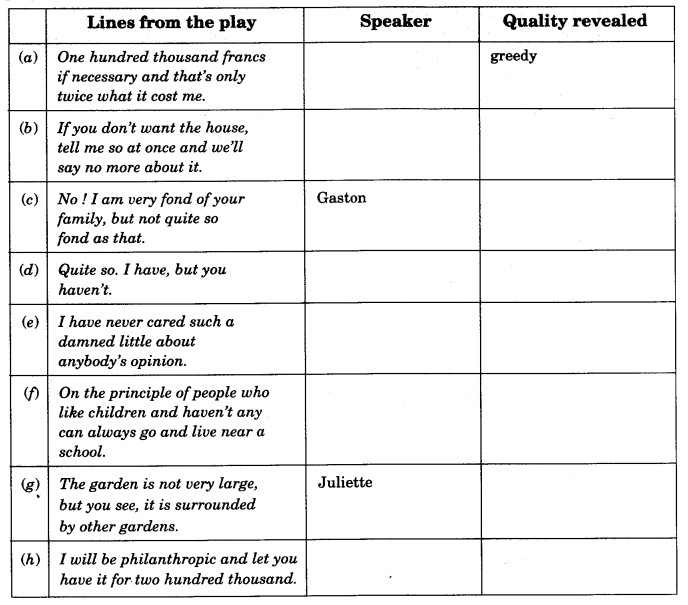

Answer
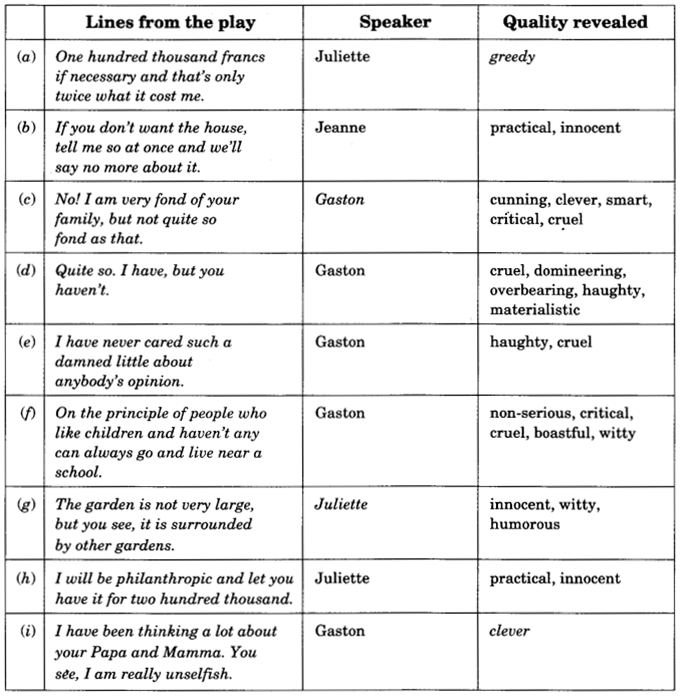
LISTENING TASK
Question 8.
Listen carefully to the description of a Villa on sale. Based on the information, draw the sketch of the Villa being described.
Answer
Please draw the sketch of the Villa yourself.
Question 9.
You are JEANNE. After coming home you realize that the Villa was not actually bought and your husband has fooled both you and the landlady of the Villa. You are filled with rage, disgust and helplessness because of your husband’s betrayal. Write your feelings in the form of a diary entry.
Answer
20 August, 20 …… 8.30 pm
I think this is the saddest day of my life! I find that my husband has not only befooled me but has also cheated me and the landlady Mrs. Juliette. Her Villa was on sale for a modest amount. It was nicely situated and had a very beautiful location. It was at a stone’s throw from Joinville, the French Hollywood. So its location was strategic and ideal. It could be the best place to live in. So I liked it but my husband refused buying it. When I asked him that he had grown fat on my dowry, he showed his cruelty to me.
He said that he had spent that long ago. But I know he had made a fortune on it. Then he developed hatred and contempt for my parents. How stupid of him! He is greedy, cruel and dishonest. How craftily he sold Mrs. Juliette’s Villa to one Mrs. Al Smith for 3,00,000 francs! He posed before her that he was the Villa owner. Strangely, he bought the same from her for 2,00,000 francs. Thus without spending a penny from his side, he made 1,0,000 francs deceiving Mrs. Juliette. I am ashamed of such a greedy, cruel and mean person. I hate him to (from) the core of my heart. I will never forgive him. I’ll see what I should do to deal with such a crooked person.
Jeanne
Question 10.
Now dramatise the play. Form groups of eight to ten students. Within each group, you will need to choose
- a director, who will be overall incharge of the group’s presentation.
- the cast, to play the various parts.
- someone to be in charge of costumes.
- someone to be in charge of props.
- a prompter.
Within your groups, do ensure that you
- read both scenes, not just your part within one scene if you are acting.
- discuss and agree on the stage directions.
- read and discuss characterization.
- hold regular rehearsals before the actual presentation.
STAGING
The stage can be very simple, with exits on either side representing doors to the outside and to the rest of the house respectively.
Answer
All these directions are to be followed while staging the play at class level. This staging is teacher-centric, that is, mainly because of him. So he should ensure that the spirit of the play is properly displayed through acting, dialogue, facial expressions, dresses, ages, body language, etc.
We hope the NCERT Solutions for Class 9 English Literature Chapter 13 Villa for Sale help you. If you have any query regarding NCERT Solutions for Class 9 English Literature Chapter 13 Villa for Sale, drop a comment below and we will get back to you at the earliest.






